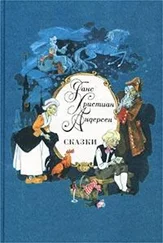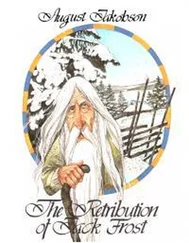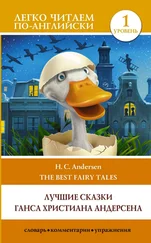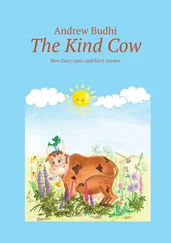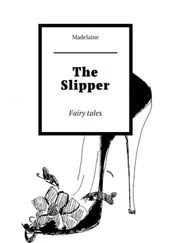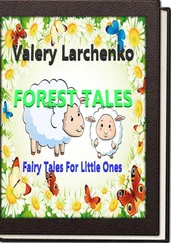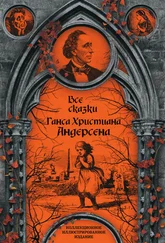Ганс Андерсен - Fairy Tales
Здесь есть возможность читать онлайн «Ганс Андерсен - Fairy Tales» весь текст электронной книги совершенно бесплатно (целиком полную версию без сокращений). В некоторых случаях можно слушать аудио, скачать через торрент в формате fb2 и присутствует краткое содержание. Жанр: Старинная литература, на английском языке. Описание произведения, (предисловие) а так же отзывы посетителей доступны на портале библиотеки ЛибКат.
- Название:Fairy Tales
- Автор:
- Жанр:
- Год:неизвестен
- ISBN:нет данных
- Рейтинг книги:4 / 5. Голосов: 1
-
Избранное:Добавить в избранное
- Отзывы:
-
Ваша оценка:
- 80
- 1
- 2
- 3
- 4
- 5
Fairy Tales: краткое содержание, описание и аннотация
Предлагаем к чтению аннотацию, описание, краткое содержание или предисловие (зависит от того, что написал сам автор книги «Fairy Tales»). Если вы не нашли необходимую информацию о книге — напишите в комментариях, мы постараемся отыскать её.
Fairy Tales — читать онлайн бесплатно полную книгу (весь текст) целиком
Ниже представлен текст книги, разбитый по страницам. Система сохранения места последней прочитанной страницы, позволяет с удобством читать онлайн бесплатно книгу «Fairy Tales», без необходимости каждый раз заново искать на чём Вы остановились. Поставьте закладку, и сможете в любой момент перейти на страницу, на которой закончили чтение.
Интервал:
Закладка:
“Some people have wealth and good fortune, others only poverty! Why should we have to suffer for our first parents’ disobedience and curiosity. We wouldn’t have behaved the way those two did!”
“Yes, we would have!” cripple Hans said at once. “It’s all here in this book.”
“What’s in the book?” asked his parents.
And Hans read them the old fairy tale about The Woodcutter and His Wife. 2 They also complained about Adam and Eve’s curiosity, the cause of their misfortune. Then the king of the country came by. “Come home with me,” he said, “And you’ll live as well as I do. Seven course meals and a dish for show. That one’s in a closed tureen and you mustn’t touch it, or your life of luxury will be over.” “What can be in the tureen?” asked the wife. “It isn’t our business,” said the husband. “Well, I’m not curious,” said his wife. “I would just like to know why we can’t lift the lid. It must be some delicacy. ”Just so there’s no booby trap about it,” said the man, “like a pistol shot that would go off and wake the whole house.” “Uff!” said the wife and didn’t touch the tureen. But during the night she dreamed that the lid lifted by itself, and there was the fragrance of the most lovely punch like you get at weddings and funerals. There was a big silver shilling lying there with the inscription : ”If you drink of this punch you’ll become the richest in the world and everyone else will become beggars.” And she woke up right away and told her husband her dream. ”You’re thinking too much about that thing!” he said. ”We could just lift it slightly and gently,” said the wife. “Very gently,” her husband answered. And the wife lifted the lid very slowly. Two nimble little mice jumped out and ran away into a mouse hole. “Good bye!” said the king. ”Now you can go home to your own bed. Don’t berate Adam and Eve any longer. You yourselves have been just as curious and ungrateful!”
“Where did that story come from and how did it get into the book?” asked Garden-Ole. “It’s just as if it pertains to us. It gives you a lot to think about.”
They went to work again the next day. They were scorched by the sun and soaked to the skin by rain. They were filled with grumpy thoughts and chewed them over in their minds.
It was still daylight that evening when they had eaten their milk porridge, and Garden-Ole said, “Read that story about the woodcutter for us again.”
“There are so many delightful stories in this book,” said Hans. “So many that you haven’t heard.”
“Well, I don’t care about them,” said Garden-Ole. “I want to hear the one I know.”
And he and his wife listened to it again, and more than one evening they came back to the same story.
“But I don’t really understand the whole thing,” said Garden-Ole. “People are like milk that curdles. Some become fine cottage cheese and others thin, watered whey. Some people are lucky in everything, always given the place of honor, and never knowing sorrow or want.”
Cripple Hans was listening to this. His legs were weak, but his mind was sharp. He read a story for them from the book of fairy tales. He read about The Man without Sorrow or Want. 3 Well, where could he be found? Because he had to be found.
The King lay ill and could not be cured except by wearing a shirt that had been worn and worn out by a person who could truthfully say that he had never known sorrow or want.
Messengers went out to all the countries of the world, to all palaces and estates, to all wealthy and happy people, but when it came right down to it, they had all known sorrow and want.
“I haven’t!” said the swineherd, sitting by the ditch, laughing and singing. “I am the happiest person.”
“Then give us your shirt,” said the messengers. “You’ll be paid half a kingdom for it.”
He didn’t have a shirt, and yet he called himself the happiest person.
“That was a fine fellow!” exclaimed Garden-Ole, and he and his wife laughed like they hadn’t laughed for years.
Just then the schoolteacher came by.
“How merry you all are,” he said. “That’s rare in this house. Did you pick a lucky number in the lottery?”
“No, nothing like that,” said Garden-Ole. “It’s Hans. He read a story for us from his fairy tale book. He read about The Man without Sorrow or Want, and the fellow had no shirt. You laugh till you cry hearing something like that, and from a printed book, too. Everyone has his burdens to bear. We’re not alone in it, and there’s a comfort in that.”
“Where did you get that book?” asked the schoolteacher.
“Hans got it at Christmas over a year ago from the master and mistress. You know he loves to read, and he’s a cripple, of course. At that time we would rather he’d gotten a couple of everyday shirts, but the book is remarkable. It answers your questions somehow.”
The schoolteacher took the book and opened it.
“Let’s hear the same story again,” said Garden-Ole. “I don’t quite have a grasp of it yet. And then he will have to read the other one about the woodcutter.”
Those two stories were enough for Ole. They were like two sunbeams that shone into the simple cottage and into the downtrodden thoughts that had made them grumpy and cross.
Hans had read the whole book, read it many times. The fairy tales carried him out into the world, there where he couldn’t go since his legs couldn’t carry him.
The schoolteacher sat by his bed. They talked together, and it was pleasant for both of them.
From that day on the schoolteacher came more often to see Hans when his parents were working. It was like a celebration for the boy every time he came. How he listened to what the old man told him! About the earth’s size and about many other countries, and that the sun was almost a half million times the size of the earth and so far away that a cannonball would take twenty five years to travel from the sun to earth, while light rays could reach the earth in eight minutes.
Every capable schoolboy knows all this now, but for Hans it was new and even more marvelous than everything written in the book of fairy tales.
A couple of times a year the schoolteacher was invited to dinner at the manor house, and on one such occasion he told them how important the fairy tale book had been in the poor cottage, where just two stories had resulted in revival and blessings. The weak, clever little boy had brought reflection and joy to the house through his reading.
When the schoolteacher went home from the manor, the mistress pressed a couple of shiny silver dollars in his hand for little Hans.
“Father and mother must have those!” said the boy when the schoolteacher brought him the money.
And Garden-Ole and Garden-Kirsten said, “Cripple Hans is, after all, a benefit and a blessing.”
A few days later when the parents were at work on the estate, its family coach stopped outside. It was the tender-hearted mistress who came, happy that her Christmas present had been such comfort and brought such pleasure to the boy and his parents.
She brought along some fine bread, fruit, and a bottle of sweet syrup, but what was even better, she brought him a little black bird in a gilded cage. It could whistle so beautifully. The cage with the bird was placed on the old chest of drawers, not far from the boy’s bed. He could see the bird and hear it, and even people way out on the road could hear the bird singing.
Garden-Ole and Garden-Kirsten didn’t come home until the mistress had left. They saw how happy Hans was, but thought that such a gift could only bring inconvenience.
“Rich people don’t consider things!” they said. “Now we’ll have that to take care of too. Cripple Hans can’t do it, and the cat will end up taking it.”
Читать дальшеИнтервал:
Закладка:
Похожие книги на «Fairy Tales»
Представляем Вашему вниманию похожие книги на «Fairy Tales» списком для выбора. Мы отобрали схожую по названию и смыслу литературу в надежде предоставить читателям больше вариантов отыскать новые, интересные, ещё непрочитанные произведения.
Обсуждение, отзывы о книге «Fairy Tales» и просто собственные мнения читателей. Оставьте ваши комментарии, напишите, что Вы думаете о произведении, его смысле или главных героях. Укажите что конкретно понравилось, а что нет, и почему Вы так считаете.

![Ганс Андерсен - Ганс Чурбан[другой перевод]](/books/95480/gans-andersen-gans-churban-drugoj-perevod-thumb.webp)
